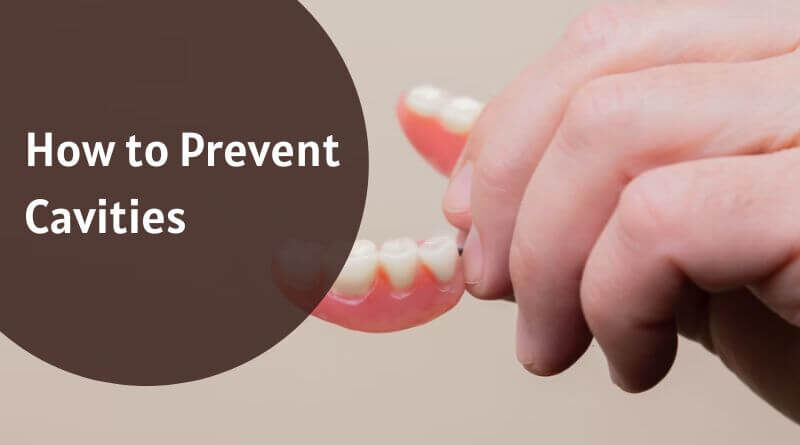How to Prevent Cavities: All You Need to Know
Cavities are no walk in the park. However, preventing them can be. And there are a plethora of different methods that allow you to do that. Some of which simply involve a good oral hygiene routine. If you really want to go a step further and guarantee yourself a cavity-free smile, you can ask your dentist about preventive dental services, such as professional teeth cleaning. If you’d be interested in professional dental cleaning or perhaps a simple dental exam, you can visit this website and schedule an appointment.
Table of Contents
Ways to Prevent Cavities at Home
As we’ve mentioned, there are a lot of ways to prevent cavities, and many of them involve simple habits you can incorporate into your daily routine. So, here’s what you can do to keep the cavities away.
Regular Brushing
Brushing your teeth properly and regularly is the first step to good oral health. The general consensus is that you should brush your teeth at least twice a day. However, if you’re able to, you should brush them after each meal. And, you should always brush using fluoride toothpaste. As far as toothbrushes go, you can opt for a regular toothbrush or an electric one. Brushing only your front teeth isn’t enough; you should always brush all the sides of your teeth for the most favorable results.
Flossing
Flossing and brushing go hand in hand. While brushing removes the plaque from your teeth, flossing can help get rid of food debris stuck in between your teeth. Not removing the debris can lead to cavity formation. That’s why you should floss every day, preferably after every meal.
Healthy Diet
An apple a day keeps the doctor away, and the same can be said for the dentist. Proper nutrition can greatly impact your oral health. Avoiding sugary foods and beverages and replacing them with nutritious ones can prevent plaque formation, which in turn prevents cavities.
Rinsing Your Mouth
By using a mouth rinse, you are essentially disinfecting your mouth. And many antimicrobial mouth rinses also help with reducing plaque. You can also use salt water as a mouth rinse as well. Rinsing is recommended both after brushing and after having a meal.
Chewing Gum
Sugarless gum can actually help with cavity prevention. By increasing the saliva flow, sugarless gum can aid you in putting a stop to those pesky cavities. Just be sure to look for the Seal of Acceptance given by the American Dental Association on the gum packaging. If the packaging has the seal of approval, you’re good to go.
Ways to Prevent Cavities With Dentist Assistance
Regular visits to the dentist are crucial to preventing cavities. That is due to the fact that certain cavities can only be detected by a professional or via dental x-ray. Not only that, but regular cleanings and check-ups can help you be a few steps ahead and avoid cavities entirely. And your dentist can always provide you with new tips and advice, depending on your situation. Here are some of the things you can ask your dentist about with the goal of cavity prevention.
Fluoride Treatment
Fluoride treatment doesn’t only benefit children. It can also be a way to maintain good oral health in adults as well. Supplemental fluoride strengthens the tooth enamel, which can be very useful for many adults. That is because the bacteria in our mouths erode the enamel, which weakens it and leaves our teeth unprotected from bacteria and prone to cavities. So, asking your dentist about fluoride treatment is always a good idea, regardless of your age.
Dental Sealants
Sealants are thin coatings that are painted onto the chewing surface of your molars. And they are a good way to protect your teeth and prevent cavities for years to come. Dental sealants are a preventive procedure and are, therefore, mostly done on children and teenagers since their teeth are still in their developing phases. But, just like fluoride treatment, dental sealants are a great choice for adults as well and are a long-lasting method of cavity prevention.
Professional Dental Cleanings
Professional teeth cleanings are a stellar way to fight cavities, and patients who undergo these cleanings are less likely to develop cavities. Dental cleaning involves removing tartar buildup and plaque, which both have a role in cavity development.
Now, you can only remove a portion of plaque and tartar when cleaning your teeth at home. So, your teeth are never 100% clean after you brush and floss them. That is why getting your teeth professionally cleaned every six months is a crucial step in cavity prevention.
Professional dental cleanings also help strengthen the tooth enamel and smooth the tooth surface. That is very beneficial since smooth teeth aren’t as likely to attract bacteria and, in turn, are less likely to develop cavities.
How to Spot Tooth Decay in Time
Spotting a cavity in time is just as important as trying to prevent it. The sooner you notice and treat a cavity, the better. Early stages of tooth decay are reversible, and you can stop cavity progression if you spot tooth decay in time. So, how can your dentist diagnose a cavity in its early stages? Well, they can do it by examining the following things:
- Examining your tooth pain and sensitivity
- Examining your teeth and mouth
- Checking for soft areas with dental instruments
- Performing dental x-rays and examining them for signs of cavities or decay
And, if your dentist does spot a cavity, they can suggest one of the following methods of treatment, based on the severity of the cavity:
Fluoride Treatments
Fluoride treatment is usually recommended for patients whose cavities are only in their early stages. As we’ve mentioned earlier, fluoride treatments have the ability to strengthen the enamel of your teeth. These treatments will be able to restore the enamel of your teeth, and may even help with cavity reversal in certain cases.
Fillings
If your cavity has progressed past its early stages, your dentist may suggest dental fillings. When performing a dental filling, your dentist will remove the decayed tissue and replace it with filling material.
Crowns
If the tooth decay is extensive, your dentist will suggest a dental crown. A crown is custom-fitted and made to cover the entirety of your tooth’s natural crown. When performing this procedure, your dentist will drill away the decayed tissue and the surrounding area to make space for the new crown.
Root Canals
If the decay is more severe and reaches the pulp of your tooth, you will need a root canal procedure. This procedure is performed when a tooth is severely decayed but still eligible for restoration. The entire diseased pulp is removed and replaced with a filling.
Tooth Extractions
When tooth decay is too severe, the only thing left to do is to extract the tooth. This procedure usually requires an implant or a bridge in order to fill the gap and keep the teeth from shifting.
Recommended Articles:
How Getting Dental Implants Work
Signs Your Dental Health Needs Attention




